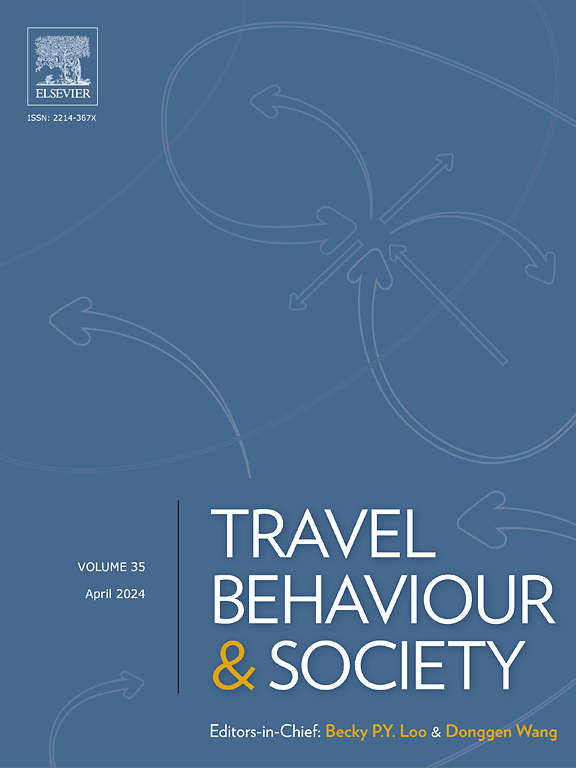对MaaS环境中涉及货币和非货币变量的风险行为的异质反应:一种潜在的类别选择方法
IF 5.7
2区 工程技术
Q1 TRANSPORTATION
引用次数: 0
摘要
人们在面对不确定性时的行为是由风险决策因素(如风险态度、损失态度、非线性敏感性)的复杂相互作用形成的。尽管如此,这些因素的异质性,特别是不同社会人口群体之间货币和非货币变量之间的区别,在运输部门和更广泛的学科中仍未得到充分探讨。本研究以不确定条件下的出行即服务(MaaS)订阅为例,设计了基于预期效用理论和前景理论的两种潜在阶级选择模型,弥补了这一差距。每个模型确定了三个集群,具有不同的社会人口属性和独特的风险决策模式。虽然大多数人对旅行时间和费用是风险厌恶的,但在较小的群体中,不同的行为是明显的,对这些因素表现出寻求风险或混合风险的态度。此外,我们提出了一个后续分析来阐明风险和损失态度之间的相关性,揭示非货币变量,风险厌恶通常意味着损失厌恶。相反,对于货币变量,厌恶风险的个人比一般人更有可能容忍损失。我们的研究结果强调了定制化政策制定的必要性,以适应不确定性下旅行者行为的异质性,从而提高有针对性的政策干预的有效性。本文章由计算机程序翻译,如有差异,请以英文原文为准。
Heterogenous responses to risky behavior involving monetary and non-monetary variables in MaaS context: a latent class choice approach
People’s behaviors in the face of uncertainty are shaped by a complex interplay of risk decision factors (e.g., risk attitudes, loss attitudes, non-linear sensitivities). Despite this, the heterogeneity of these factors, particularly the distinction between monetary and non-monetary variables across different socio-demographic groups, remains underexplored within the transportation sector and broader disciplines. This study bridges this gap by devising two latent class choice models grounded in expected utility theory and prospect theory, using Mobility-as-a-Service (MaaS) subscription under uncertainties as case study. Each model identified three clusters, characterized by distinct socio-demographic attributes and unique risk decision patterns. While most individuals are risk-averse towards travel time and cost, divergent behaviors are evident among smaller groups, showing risk-seeking or mixed-risk attitudes toward these factors. Furthermore, we propose a follow-up analysis to elucidate the correlations between risk and loss attitudes, revealing that for non-monetary variables, risk aversion generally implies loss aversion. Conversely, for the monetary variable, risk-averse individuals are more likely than average to be loss-tolerant. Our findings underscore the necessity for customized policymaking that accommodates the heterogeneous nature of travelers’ behaviors under uncertainties, thereby enhancing the efficacy of targeted policy interventions.
求助全文
通过发布文献求助,成功后即可免费获取论文全文。
去求助
来源期刊

Travel Behaviour and Society
TRANSPORTATION-
CiteScore
9.80
自引率
7.70%
发文量
109
期刊介绍:
Travel Behaviour and Society is an interdisciplinary journal publishing high-quality original papers which report leading edge research in theories, methodologies and applications concerning transportation issues and challenges which involve the social and spatial dimensions. In particular, it provides a discussion forum for major research in travel behaviour, transportation infrastructure, transportation and environmental issues, mobility and social sustainability, transportation geographic information systems (TGIS), transportation and quality of life, transportation data collection and analysis, etc.
 求助内容:
求助内容: 应助结果提醒方式:
应助结果提醒方式:


